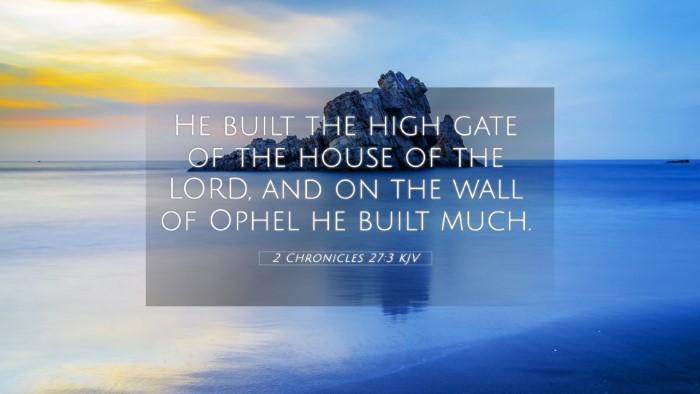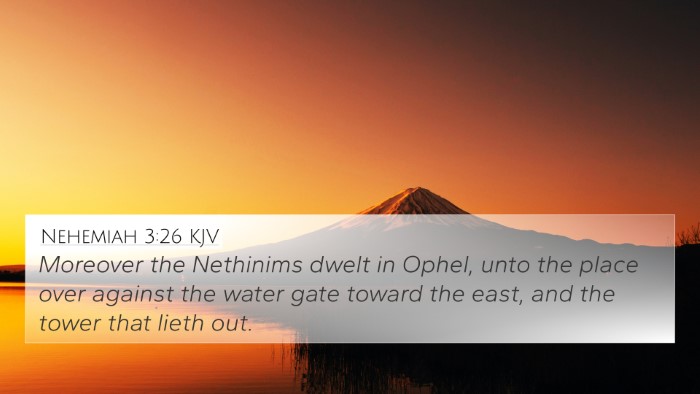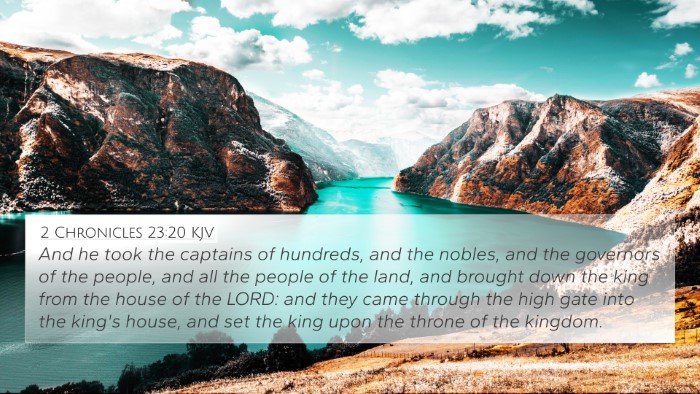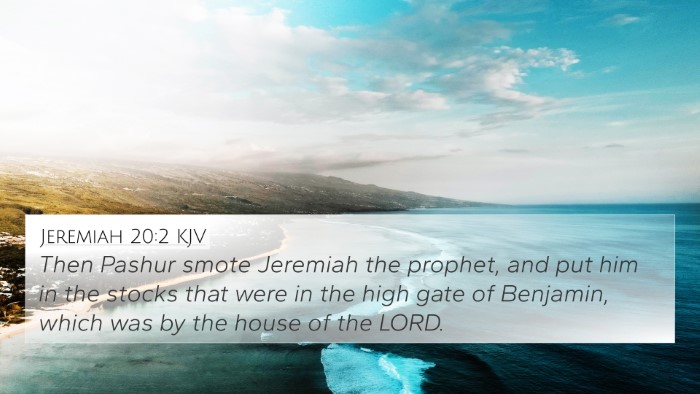Understanding 2 Chronicles 27:3
Verse: "He built the upper gate of the house of the LORD, and he dealt mightily in Jerusalem." - 2 Chronicles 27:3
This verse provides insight into the reign of King Jotham of Judah, highlighting his contributions to the temple and his administration in Jerusalem. This exploration combines insights from several prominent public domain commentaries, including those by Matthew Henry, Albert Barnes, and Adam Clarke.
Context and Significance
The reign of Jotham is situated in a period marked by the decline of Israel and the complexities of governance in Judah. As we analyze this verse, we see that Jotham wasn't merely a ruler but a builder, reflecting the spiritual priorities of his reign.
Matthew Henry's Insights
Matthew Henry emphasizes the importance of Jotham's architectural contributions. The "upper gate" he built signifies an enhancement of worship practices, allowing more people to enter the temple and fostering a closer relationship with God. Henry highlights how such actions can lead to stronger faith and community amongst the Israelites.
Albert Barnes' Commentary
Albert Barnes focuses on the implications of Jotham's strength "in Jerusalem." He interprets this strength not just as military might but spiritual vigor. Jotham’s dedication to God's house indicates a leader who prioritizes divine worship over political gain, suggesting a model for contemporary leaders in both religious and secular spheres.
Adam Clarke's Analysis
Adam Clarke elaborates on the architectural and spiritual achievements of Jotham. He connects the construction of the upper gate to a broader theme of restoration in Judah. Clarke notes that such structures serve both functional and symbolic purposes, representing access to God and His blessings for the people.
Thematic Connections and Cross-References
The verse encourages cross-referencing with other biblical texts that highlight themes of leadership, temple worship, and divine strength. Below are notable connections:
- 2 Kings 15:35: "Howbeit the high places were not removed; the people sacrificed and burned incense still in the high places." This connects to Jotham's efforts to strengthen worship, showing a contrast in the faithfulness of his reign.
- 2 Chronicles 26:16-21: Jotham's father, Uzziah, exemplified the dangers of pride in leadership, setting the stage for Jotham’s faithful approach.
- Psalm 84:10: "For a day in thy courts is better than a thousand elsewhere." This verse reflects the spiritual significance of building access to God's presence.
- Isaiah 6:1: "In the year that King Uzziah died, I saw the Lord sitting upon a throne." Jotham's kingship serves as a transition into the prophetic era, emphasizing the critical role of faithful leaders.
- Zechariah 4:6: "Not by might, nor by power, but by my spirit, saith the LORD of hosts." This emphasizes that Jotham’s achievements were through divine strength, resonating with the "dealt mightily" aspect.
- 1 Chronicles 28:10: "Take heed now; for the LORD hath chosen thee to build a house for the sanctuary." This resonates with Jotham's commitment to temple building.
- Proverbs 11:11: "By the blessing of the upright the city is exalted." This suggests that Jotham's righteousness contributed to Jerusalem’s prosperity.
Exploring Inter-Biblical Dialogue
In understanding Jotham's reign and actions in 2 Chronicles 27:3, one can see patterns and principles that echo throughout both the Old and New Testaments. His dedication to the temple foreshadows New Testament themes of Christ as the ultimate access point to God, leading to connections in the Gospels.
Related New Testament Scriptures
- John 2:19-21: Jesus speaks of the temple, indicating that He is the temple and the way to God.
- Hebrews 10:19-22: Highlights the believer's access to God through Christ, mirroring the significance of Jotham's temple enhancements.
Conclusion
2 Chronicles 27:3 serves as a powerful testament to the importance of righteous leadership and its impact on worship, community strength, and spiritual access to God. Through careful cross-referencing, we see how this verse aligns with various Biblical themes and teachings, illustrating the unity of scripture and the enduring relevance of its messages.
By employing tools for Bible cross-referencing, such as a Bible concordance or a Bible cross-reference guide, readers can delve deeper into the rich tapestry of scripture. As the connections between the verses unfold, they reveal a comprehensive understanding of God's workings through faithful leaders like Jotham.
In summary, 2 Chronicles 27:3 is more than just a historical account. It encapsulates valuable lessons about leadership, worship, and the continual need for divine strength, urging us to explore how these themes intersect across the biblical narrative.






